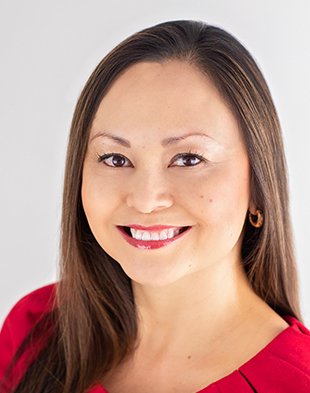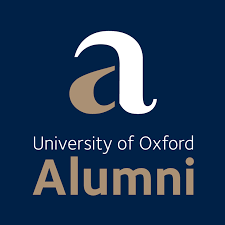Sarah Hammer
Managing Director, Stevens Center for Innovation in Finance
Sarah Hammer is Managing Director of the Stevens Center for Innovation in Finance and Senior Director of the Harris Alternative Investments Program at the Wharton School of the University of Pennsylvania. Previously, she was Acting Deputy Assistant Secretary for Financial Institutions and Director of the Office of Financial Institutions Policy at the United States Department of the Treasury and has held various leadership positions throughout financial services in general management, portfolio management, trading, marketing, research, and analytics at the Vanguard Group, PIMCO, JP Morgan Chase, BlackRock, and Tudor Investments. She completed a MSt in International Human Rights Law at Oxford and earned a J.D. from the University of Pennsylvania Law School, an M.B.A. from the Wharton School of the University of Pennsylvania. She is a Harry S. Truman Scholar and a Member of the American Law Institute.

Could you tell us about your journey to Oxford?
My experience at Oxford was truly life-changing. I have long had an interest in international law, global policy, and international relations, and the education that Oxford provides on those subjects is unparalleled. At Oxford, I learned the principles of law, treaties and customs, as well as the conceptual framework that guides countries in decisions across a range of domains and promotes the practice of international relations. I also wrote my dissertation on the legal rights of children, which has been an issue of deep personal interest to me throughout my life. While writing my dissertation, I worked with Professor Geraldine Van Bueren, one of the original drafters of the United Nations Convention on the Rights of the Child. Professor Van Bueren is a brilliant lawyer and incredible human being who has remained a mentor to me throughout my life. At Oxford, I also became friends with an impressive group of fellow students/professionals from around the world, and we remain in touch and continue to support each other in our careers and lives. By the way, when I began the MSt program at Oxford, I had newborn twins and a toddler with me. It was a busy and invigorating time. We had a tremendously positive experience.
Your current work and research specialises in some of the most cutting edge topics at the intersection of law and finance - financial regulation, fintech, innovation, and investment. As areas of expertise, were these always an interest or did they emerge over time?
I've had the opportunity to work in a variety of roles in the financial sector, covering a range of asset classes, and progressively shifting my perspective from the granular to the grand scheme. Research and analytics taught me the fundamentals of finance and financial products. Trading and portfolio management were an excellent way to learn how the financial markets work and who the participants are. Eventually, I moved into roles where I had more strategic influence over a larger business. The broader perspective enabled me to focus on the prospects for long-term growth in financial services and the importance of regulation and financial technology in shaping the industry. In my current work, I remain very focused on the future of finance, including how financial services is evolving due to regulation and technology. In fact, the name of the Juris Doctor course that I teach at the University of Pennsylvania Law School is "The Future of Finance." In my class, we cover an extensive framework of the law -- from capital markets regulation to bank capital and liquidity analysis to financial technology and blockchain. My goal is to provide a curriculum that covers both fundamentals and innovative topics, and therefore helps my students form their own opinions about the transformation of the financial sector.
And to what extent has the MSt influenced your perspective on these areas?
Undoubtedly, my Mst studies at Oxford University have been instrumental in my career. First and foremost, the fundamentals of the degree have been foundational in my thinking about the law. These include the sources of law, the relationship between domestic and international law, practices to maintain good relations between entities and countries, and the appropriate role of national and supranational bodies. Additionally, one of the key principles that has always stayed with me is the recognition of the inherent dignity of all human beings as foundational to freedom, justice and peace in the world. Part of my studies also included an evaluation of economic rights, which has been important to my current work on financial inclusion within the investment industry.
After completing your J.D. at the University of Pennsylvania Law School, you moved to Vanguard, one of the world’s largest investment companies. Could you tell us more about your role there? How did your academic studies inform your professional life?
I worked in a number of large financial companies prior to my term at US Treasury: Tudor Investments, BlackRock, JP Morgan, Pacific Investment Managing Company, and Vanguard. At Vanguard, I worked on two cross-disciplinary initiatives that were at the intersection of finance and law, and really allowed me to leverage my finance experience and my legal training. The first initiative was leading the research and thought leadership around the 2013-15 policy debate on whether asset managers should receive the regulatory designation of "Systemically Important Financial Institution" (SIFI) by the Financial Stability Oversight Council. This was a critical issue for the asset management industry, because SIFI designation would result in application of an additional regulatory framework. Making strong policy arguments involved rigorous analysis of risk in asset management and coordination across the industry with other large firms and trade associations. Ultimately, the work was instrumental in shaping my understanding of financial institutions business models and their risk profiles. The second initiative was a two-year strategy project with one of Vanguard's board members to evaluate the prospects for long-term growth in asset management. We worked consistently for two years to conduct a quantitative and qualitative analysis of the factors of long-term growth in large companies, and then applied our findings to case studies in asset management. At the time of our study, financial technology was not yet "hot," but our findings led us to believe that fintech and innovation would have a key role in transforming traditional asset management. Years later, this has absolutely proven to be true.
You then moved US Department of the Treasury – how did that come about? What was your main focus during your time there?
I stepped out of the private sector to focus on regulation, public policy, and research. I served as Acting Deputy Assistant Secretary for Financial Institutions at US Treasury, and simultaneously oversaw three offices: Financial Institutions Policy, Critical Infrastructure Protection and Compliance (cybersecurity), and the Federal Insurance Office. This role involved supervising three key policy offices with more than 100 subject matter experts and managing 28 direct reports. During my time at US Treasury, I was also charged with leading a cross-functional team to complete a full analysis and recommendations on the financial regulatory framework. The challenge was to tackle the full complexity of the financial sector and develop a vision for how regulation could be improved. This required coordinating a large team of experts, collaboration with federal financial regulators, expansive analysis of data, and active engagement with executive-level members of the private sector. Our insights spanned banking, capital markets, alternative investments, and financial infrastructure. It was a unique experience to navigate so many different factors, and the work undoubtedly had a major impact on the financial sector.
You’re now Managing Director of the Stevens Center for Innovation in Finance. What led you to this role? What does the Center do and what projects are you currently working on?
At the end of 2017, it made sense to transition from the US Treasury to academia. I was fortunate to have an opportunity to return to my alma mater. I had already served on the adjunct law faculty at Penn for several years, teaching financial regulation, so joining Wharton was certainly additive. I started as Senior Director of the Harris Alternative Investments Program, Wharton's center focused on private equity, venture capital and hedge funds. There, I applied my knowledge of investments and regulation to private capital investments. In this role, I am privileged to work with world-class Wharton faculty and dedicated students. Additionally, much of what I do involves collaborating with our incredibly accomplished private equity alumni. As an example, in 2018, infrastructure investment was the focus of national attention. We hosted a private roundtable event for the world's leading infrastructure investment professionals to discuss policy proposals for facilitating and transforming infrastructure investment in the US. Ultimately, our findings were incorporated into thought leadership at Wharton and throughout the public sphere.
Then in early 2019, I took on a second role at Wharton. Wharton launched the Stevens Center for Innovation in Finance as the world's premier center for research, education, and thought leadership on financial technology. I now also serve as Managing Director of the Stevens Center in addition to continuing my work as Senior Director at the Harris Program and Adjunct Professor at the University of Pennsylvania Law School. The Stevens Center is really at the forefront of what is happening in finance. In September of this year, we hosted a week-long virtual conference and hackathon with students on the theme of COVID and the Economy. Students helped elevate a blockchain-based analytics platform to hold COVID and economics data, and then subsequently used that platform to make predictions about the impact of the pandemic on the economy and financial markets. Right now, we are focused on research related to the acceleration of the digitization of finance due to COVID, and financial inclusion, meaning access to financial services and capital. And for the Harris Program, I am now launching our initiative on diversity and inclusion, which involves working with an outstanding group of senior private equity professionals across the industry who share our passion for diversity and inclusion in investing. Our work in alternative investments will continue to be important as we move into 2021 and work to rebuild the economy post-pandemic.
Which figure(s) inspire you? Who do you look up to?
I have the honor of having many wonderful mentors in my career and life. Recently, one of my mentors passed away: Dr. Louis Blair, former President of the Harry S. Truman Scholarship Foundation. I met Dr. Blair when I was selected as a Truman Scholar while in college, and from that year forward, he played a pivotal role in my life. Dr. Blair took a keen interest in each of the Truman Scholars selected annually. He would ask us to write reports on our lives and submit them to him, and then he would read them and provide comments. He must have read hundreds of reports every year, and he had a key role in shaping leaders across the policy spectrum of the US over several decades. There are now numerous folks in lead roles in federal and state government as well as the nonprofit and private sectors who owe their success, at least in part, to Dr. Blair. He was also excellent at bringing the scholars together to meet each other and support one another. Because of Dr. Blair, we formed bonds that last a lifetime. For me personally, he was someone who supported me through good times and challenging times as well. I actually named my daughter after him. One of the most special moments in my and my daughter's life was when Dr. Blair traveled to meet with us shortly before his death. He had written a letter for my daughter with his advice and gave her pictures of himself. She will cherish those items forever.
...one of the key principles that has always stayed with me is the recognition of the inherent dignity of all human beings as foundational to freedom, justice and peace in the world.

